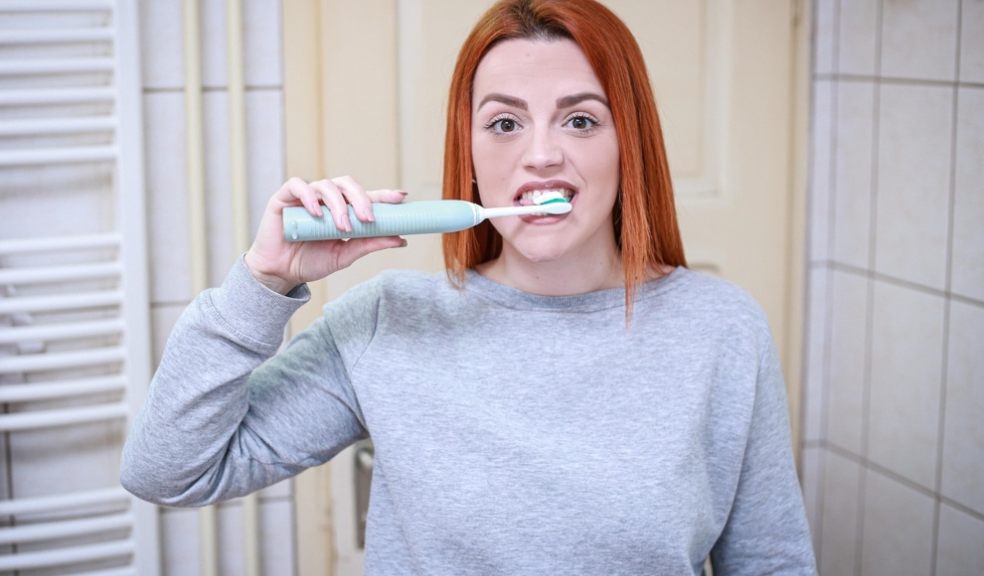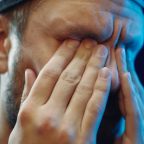
Dentist Reveals Five Bedtime Mistakes You Should Never Make
A dentist has issued a warning about five bedtime habits, including one that can damage the joints and muscles as well as the teeth.
According to Dr Gizem Seymenoglu, a GDC-registered dentist and medical aesthetician with Longevita Dental, bruxism — the grinding of the teeth and the clenching of the jaw — during nighttime can result in cracked teeth, temporomandibular joint problems and muscle swelling.
“The unfortunate thing about bruxism is that people do it involuntarily. Even though clenching is not so harmful, teeth grinding can cause serious damage to the teeth and the temporomandibular joint, the joint where the lower jawbone attaches to the skull on the side of the head and which is essential to speech and eating.
Abnormally, your teeth will be subjected to unusually large forces for hours on end while you sleep, and that can lead to cracked enamel and broken teeth.
Also, your chewing muscles, like all muscles, are meant to relax at night, but since that won’t happen, you likely wake up in pain with a headache and incredibly swollen masseters, which are one of the primary food chewing muscles.
Additionally, the temporalis or temporal chewing muscles can be affected which can contribute to headaches,” Dr Gizem explained.
Furthermore, the London-based dentist says snoring and sleeping with your mouth open can make your teeth more vulnerable to bacteria.
“Physiologically, saliva production decreases while we sleep. That’s because we normally don't eat or talk during that time, so we don't have much need for saliva. As a result, our mouths are naturally dry, but the problem is worsened if someone sleeps with their mouth open.
We need some amount of saliva even when we’re sleeping because it keeps the mouth lubricated and makes swallowing easier. But when there’s no saliva at all, the mouth becomes very dry, and the saliva can’t wash the teeth or act as a buffer for them.
Consequently, the teeth become more exposed to bacteria, which can lead to cavities and other dental issues.”
According to Dr Gizem, what’s worse is that some people completely skip brushing their teeth at night, allowing plaque to cause a host of problems for them.
“Plaque is a sticky film of bacteria that constantly forms on the teeth, but if you don’t get rid of it through brushing, the bacteria can cause tooth decay.
Additionally, the bacteria-filled plaque can irritate the gum tissue, which can cause redness and make them more susceptible to bleeding. That, in turn, can lead to gum disease.”
The simplest way to avoid this from happening is to brush and floss your teeth, explains the dentist. But before you do that, it’s also important that you don’t snack on any acidic foods.
“Alcohol, coffee, sodas, and citrus fruits are all acidic, and if you brush your teeth immediately after consuming them before bedtime, they can damage your tooth enamel. But the thing about these foods is that they can be harmful no matter the time of the day. That’s because foods that are very sugary lower the pH of the mouth and increase the risk of cavities,” Dr Gizem said.
The practitioner, who has over a decade of experience in her field, also highlighted another mistake — one that denture-wearers, in particular, might make before bedtime: not removing their dentures.
She added: “The best way I can explain this is that sleeping with your dentures in is like going to bed with your shoes on. What happens to your feet? They get uncomfortable because they are unable to relax. It’s exactly the same with dentures in the mouth.
Removing dentures will allow the tissue and mucosa in your mouth to relax. And if you fail to do that, you may develop denture sores and wounds underneath.
It’s also important to remove your dentures before you clean them. Some people brush their dentures like they’re brushing their normal teeth, but that’s definitely not a good idea either.”
Dr Gizem concludes that the best thing to do before sleeping is to thoroughly brush and floss your teeth. Afterwards, you can have water, but no other foods. And for those who sleep with their mouth open, the dentist suggests that mouth taping can be helpful.
“When your mouth is closed, you’ll sleep more comfortably. It will also prevent a dry mouth and help with the development of the jaw structure,” she added.
For bruxism sufferers, the dentist noted that several treatment options are available, including mouth guard and splint, botox and even psychological therapy because stress and anxiety can be one of its causes.













